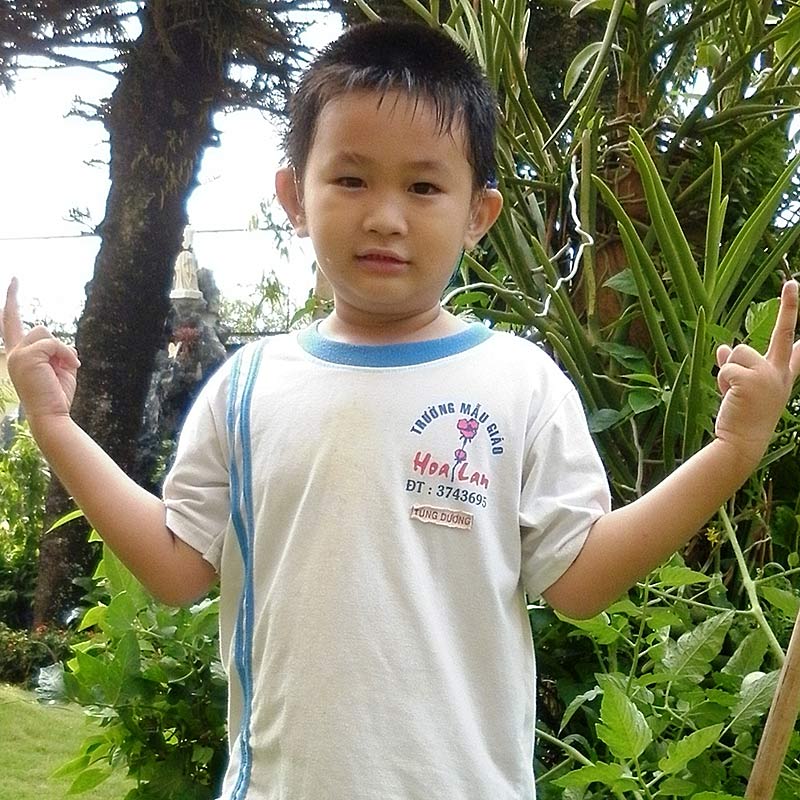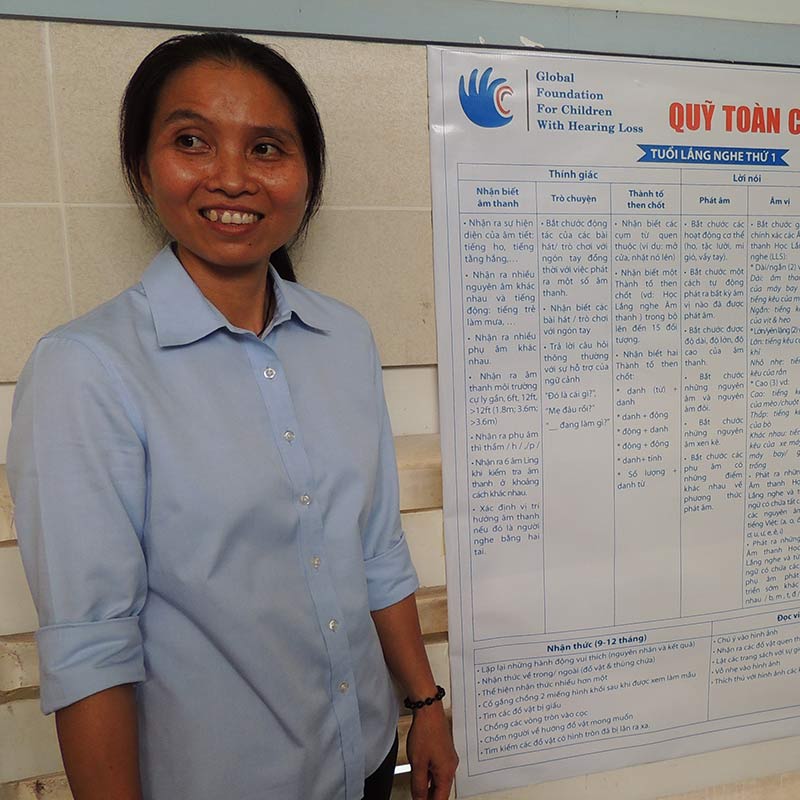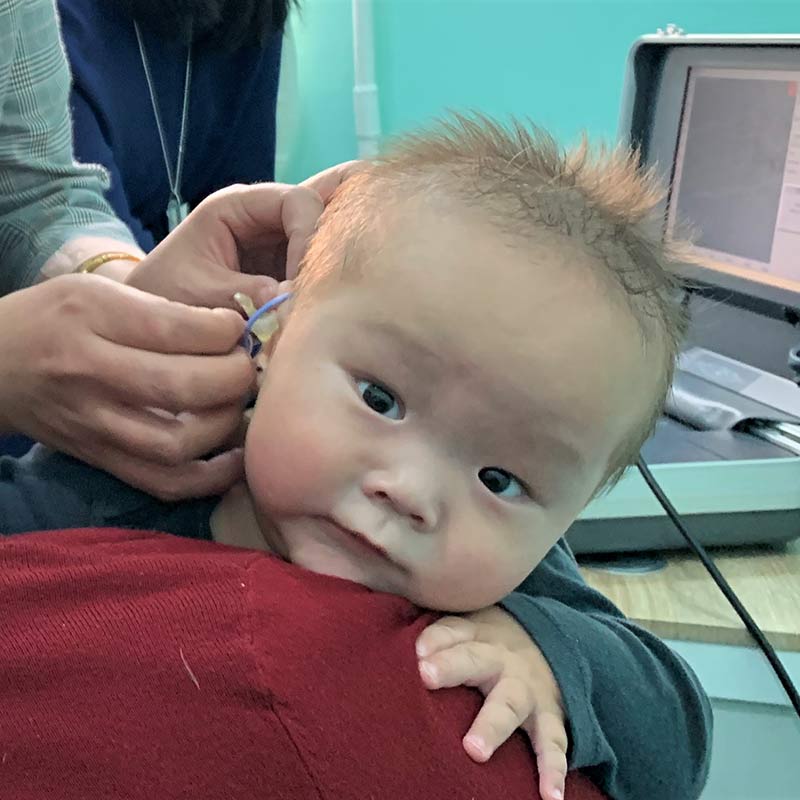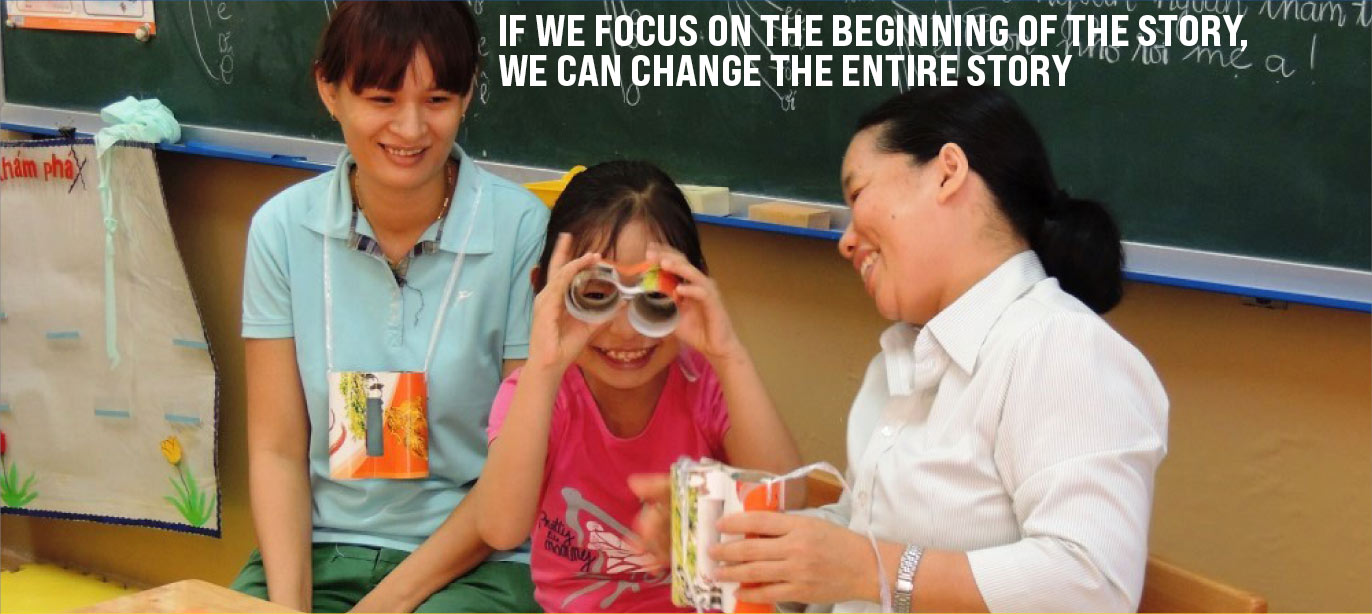
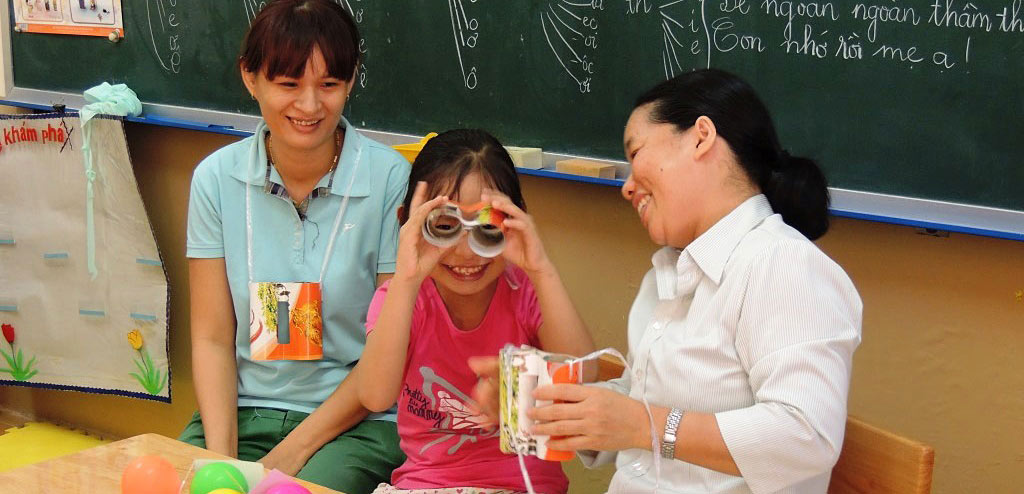
If we focus on the beginning
of the story, we CAN change
the entire story
The World Health Organization estimates that there 34 million children globally with significant hearing loss and the majority live in developing countries. Left untreated, hearing loss contributes to poor outcomes in language and learning in young children that have lifelong and permanent ramifications on their quality of life.
Continuum of Care
Many studies have shown that excellent listening and spoken language outcomes are possible in babies and young children with congenital hearing loss. However, these outcomes are dependent on a Continuum of Care being made available to them in their first three years of life that includes:
- Early identification of hearing loss through screening programs,
- Informed and engaged family members and caregivers,
- Timely fitting of hearing aids or cochlear implants, and
- Access to locally-based professional expertise in habilitation (pediatric audiology, auditory-verbal practice, early intervention).
When all four of these elements are in place, babies and young children with all degrees of hearing loss can learn to listen and speak. They can attend mainstream schools with their typically hearing peers, pursue broad employment opportunities in their future, and integrate fully into their hearing communities.
However, there is a finite window of time that this reality is possible. After age 6, the brain moves on to other areas of development and the chance for a child who is deaf to learn to listen and speak is permanently lost. Time is of the essence.
Unfortunately, in many developing countries, the elements in the Continuum of Care are fragmented or do not exist at all, negatively impacting the futures of thousands of children. The Global Foundation For Children With Hearing Loss is working to change this reality.
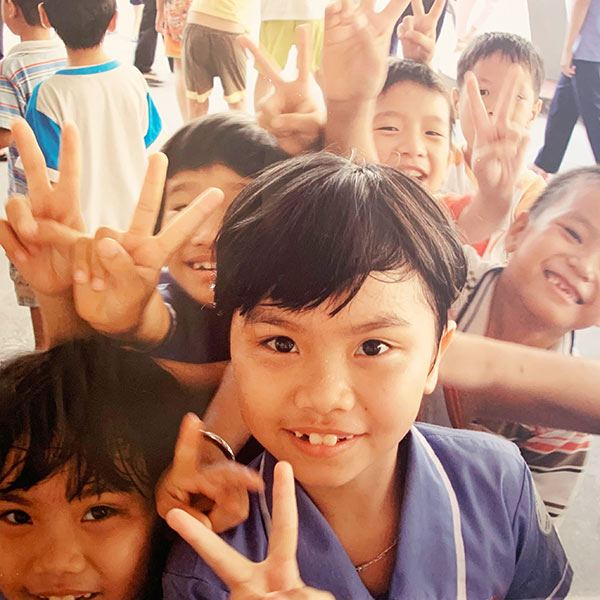
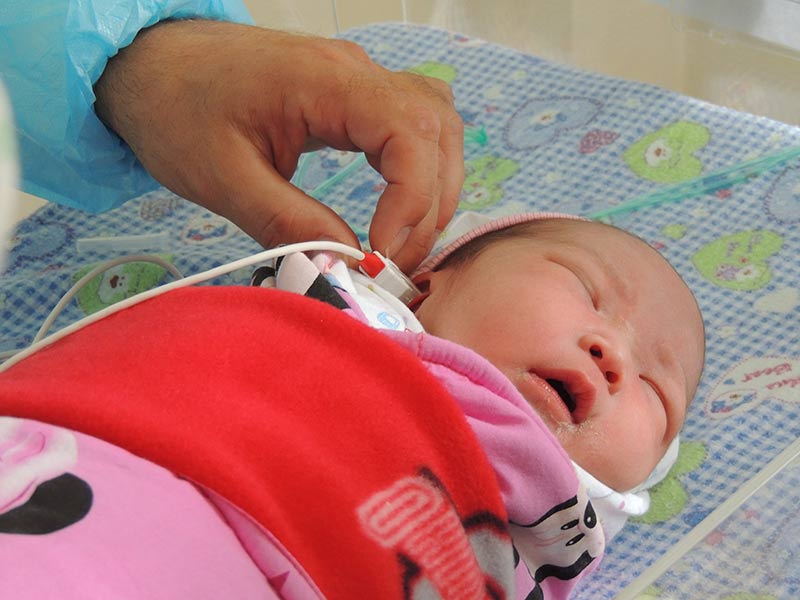
How We Are Unique
The Global Foundation for Children With Hearing Loss is one of the very few organizations in the world that works in developing countries to lay the foundational elements in the Continuum of Care for babies and young children with hearing loss.
We collaborate with government agencies and in-country partners across both health care and early education to identify and address systematic gaps in services and support for young children with hearing loss and their families.
Instead of providing direct service, our emphasis is on the long-term, comprehensive capacity building that is required to ensure that children with hearing loss 0-6 years of age have the personnel and support they need in their own countries to listen, speak and thrive.
We introduce expertise and modern technologies in hearing health care and early education, enabling full integration and inclusion of children with hearing loss into the local communities where they live. Our innovative and dedicated approach to establish local expertise and services results in more young children with hearing loss being able to listen, speak, and thrive.
We place a great deal of importance on relationships with local constituents and developing programs in collaboration with our in-country partners. This focus and commitment to true partnership has been a significant contributor to the success and sustainability of our programs over time.
Our core focus areas are:
TRAINING PROGRAMS: The foundation of our work comprises multi-year, in-country training programs that build capacity and knowledge among medical professionals, teachers, therapists, community health workers and families who work with or have children with hearing loss. Our proprietary training curriculum is taught by our team of international experts in pediatric audiology, speech language pathology, auditory-verbal practice, and early intervention. Our training programs are unique in that we invest in the participants’ learning over a period of years. These are not one time seminars or weekend sessions. We apply a Train the Trainer approach to ensure scalability and sustainability of our teachings.
CONSULTATION: We offer consultation and project management support to government agencies and local entities in developing countries to establish or enhance in-country health and education services and systems within the Continuum of Care for babies and young children with hearing loss and their families.
OUTREACH INITIATIVES: We partner with local entities in developing countries to raise awareness about pediatric hearing loss and how it can be addressed and help to reduce stigma.
TECHNOLOGY AND RESOURCES: We provide equipment, resources, and tools to help local professionals carry out their work with babies and young children with hearing loss. We also provide hearing technology to young children in need who are supported ongoing by the local professionals we train.
RESEARCH: We support research efforts related to pediatric hearing loss in developing countries that can be used to advance practices in audiology, early intervention, and auditory-verbal practice globally.

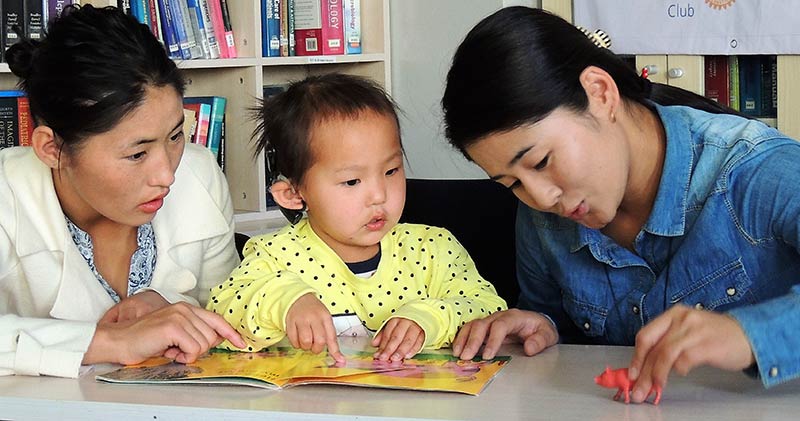
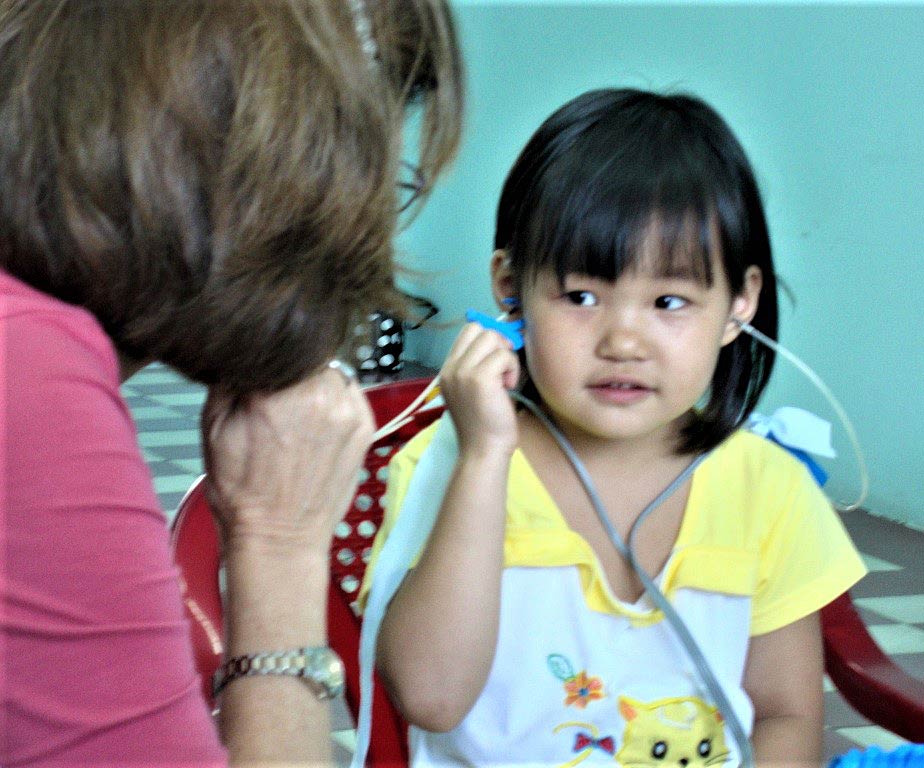
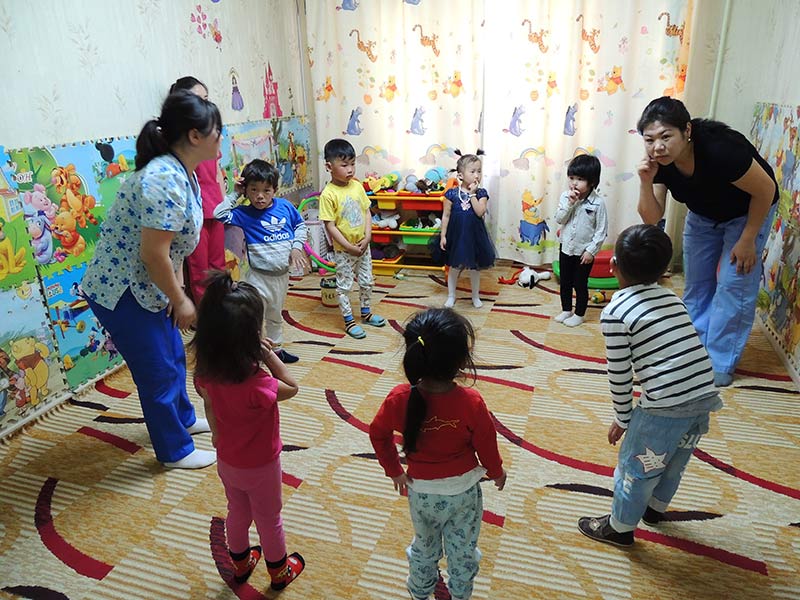
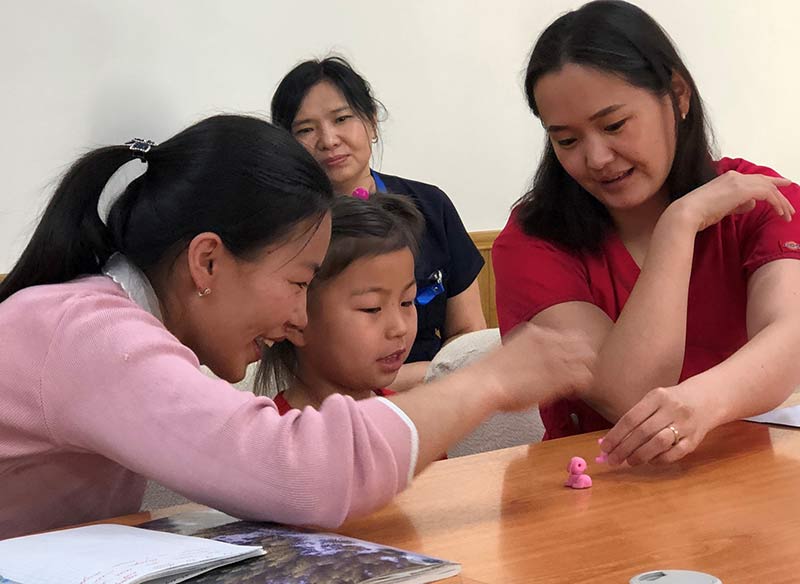
Success Stories
Click on the images below for some examples of how the Global Foundation For Children With Hearing Loss has made a difference in people’s lives. The replicative nature of our model is such that our team casts a proverbial pebble of knowledge and support into the countries where we work. We are unable to see the full extent of the ripples that result, although we know they go far.
Bao Tran
Born in a small rural town of Vietnam, Nguyen Ngoc Bao Tran was diagnosed with severe hearing loss at 11 months of age. The family was advised that if they wished for Bao Tran to learn to listen and talk, she needed hearing aids and rehabilitation support immediately.
“Time is a critical element because audition and spoken language are developed only in the first years of life. The earlier such services are made available, the more chance there is to mitigate the impact of hearing loss on a child’s development,” says Dr. Nguyen at Children’s Hospital No.1 in Ho Chi Minh City where Bao Tran’s hearing loss was confirmed.
The family visited an audiology clinic near their hometown to secure the hearing aids that would give Bao Tran access to the sounds she needed to hear to develop the ability to listen and speak. However, the cost was very high and they were unable to afford the hearing aids. Bao Tran’s family despaired over their situation.
The clinic’s audiology technician, Nguyen Ngoc Bich referred them to the Global Foundation For Children With Hearing Loss. We provided Bao Tran’s family with a pair of new, high-quality, digital hearing aids. These hearing aids were fit on Bao Tran by Bich and other Vietnamese audiology technicians who had been trained by the Global Foundation For Children With Hearing Loss. It was an exciting day for Bao Tran’s parents as their daughter heard her first sounds.
“I called Bao Tran and she turned her head to look towards me. It was the happiest moment of my life to know that my child could have a chance to hear after all and that I will be able to talk with her! Of course, I knew that a long road lay ahead of us. It was explained to us that she would need to come for therapy for many years to benefit fully from the hearing aids and be able to speak,” said her mother.
The hearing aids were just the first step. Bao Tran also required ongoing auditory-verbal therapy to learn to make sense of sounds she was hearing for the first time and eventually learn to listen and talk. A Vietnamese therapist and Vietnamese teacher who work at an early intervention center near Bao Tran’s house had been trained by the Global Foundation For Children With Hearing Loss. They welcomed the opportunity to help Bao Tran and her family and did so over the next several years.
Now six years old, Bao Tran is thriving. She listens well and her speech pronunciation is very clear. Bao Tran attends the mainstream first grade in her town alongside her peers of typical hearing. Like any six-year-old, Bao Tran is very talkative, loves to laugh, sing and is doing well in school. She has a bright future ahead thanks to the early support she received. We are so thrilled for her family and look forward to following her progress in the years to come.
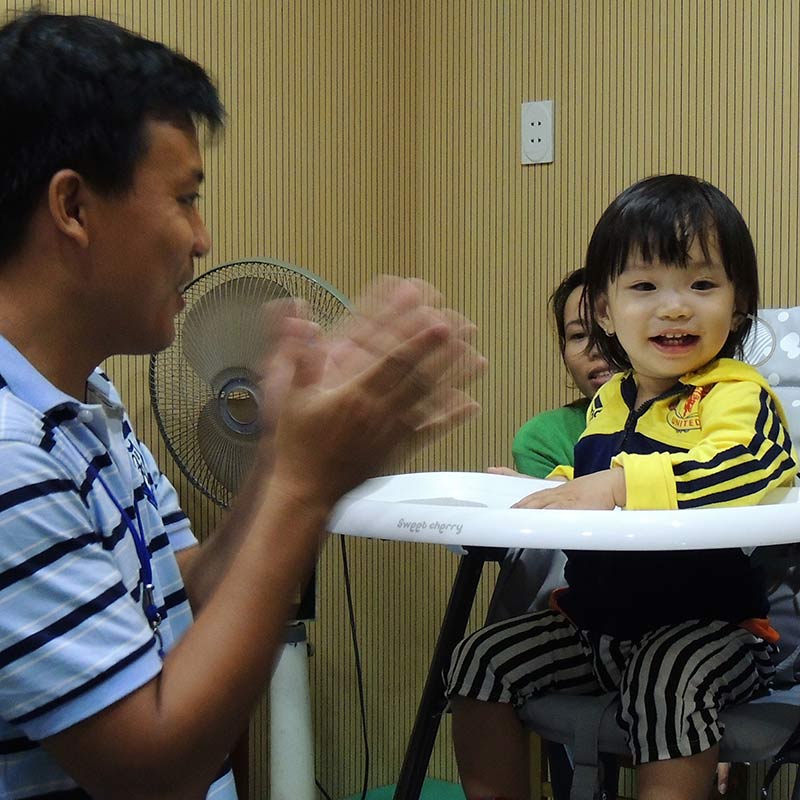
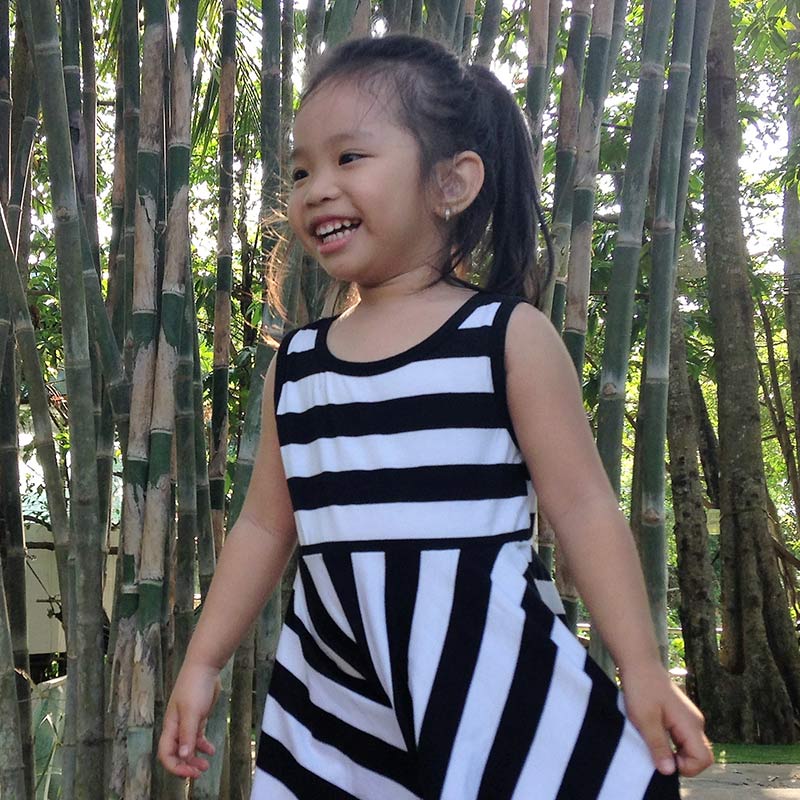
Sister Thuy
Sister Thuy participated in the Global Foundation For Children With Hearing Loss Vietnam training program for several years. First, she joined our early intervention training program, then attended the auditory-verbal practice training program, and finally developed her knowledge in pediatric audiology through our audiology training program.
Sister Thuy then started an early intervention center to help young children with hearing loss learn to listen and talk, the first of its kind in her province. Its curriculum is based on the teachings she acquired from the Global Foundation For Children With Hearing Loss. In addition to training teachers and therapists to provide auditory-verbal therapy sessions and early intervention classes in the center, Sister Thuy designated space for educational audiology services, and with our help, secured audiology equipment so she can test children’s hearing and adjust hearing aids as needed. This audiology room has been beneficial in supporting the children’s hearing needs in timely fashion as families in the area no longer need to travel hours to Ho Chi Minh City for such services for their children.
Today, about 70 children with hearing loss under 6 years of age attend the Rose School every year for early intervention and audiology services. Children who “graduate” out of the center are able to listen, speak, and attend local mainstream schools. Some of these children return to the Rose School for extra support as needed and/or continue auditory-verbal therapy while pursuing their education in the mainstream setting.
Their dynamic director, Sister Thuy, absorbed the teachings provided by the Global Foundation For Children With Hearing Loss and has made use of those lessons in the best possible way — by establishing a center that serves young children and their families in her own community. Sister Thuy also commits significant time every year to sharing her knowledge with other Vietnamese professionals and families so that even more children in Vietnam can benefit.
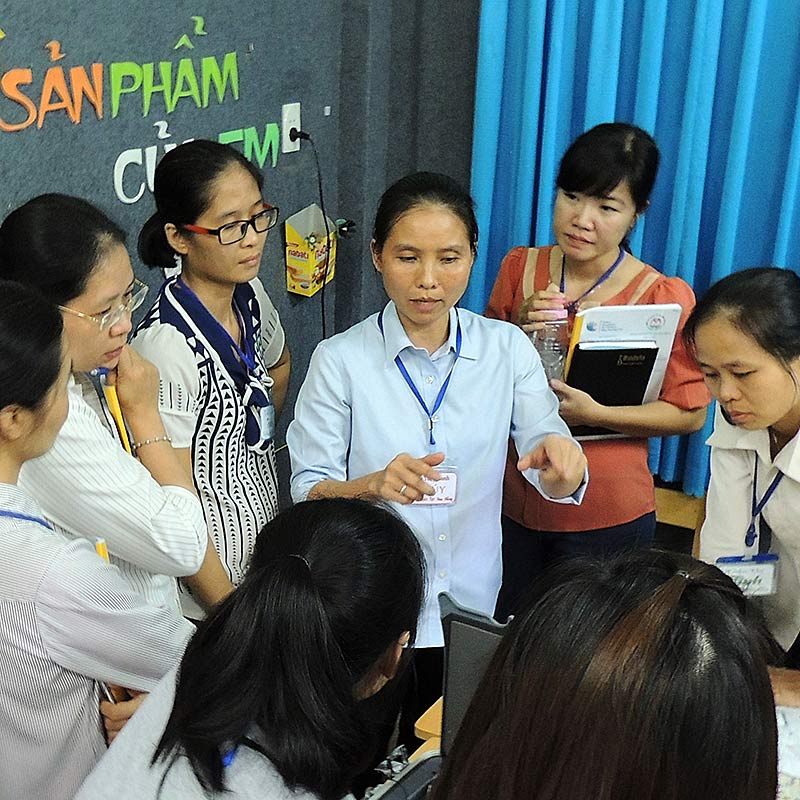
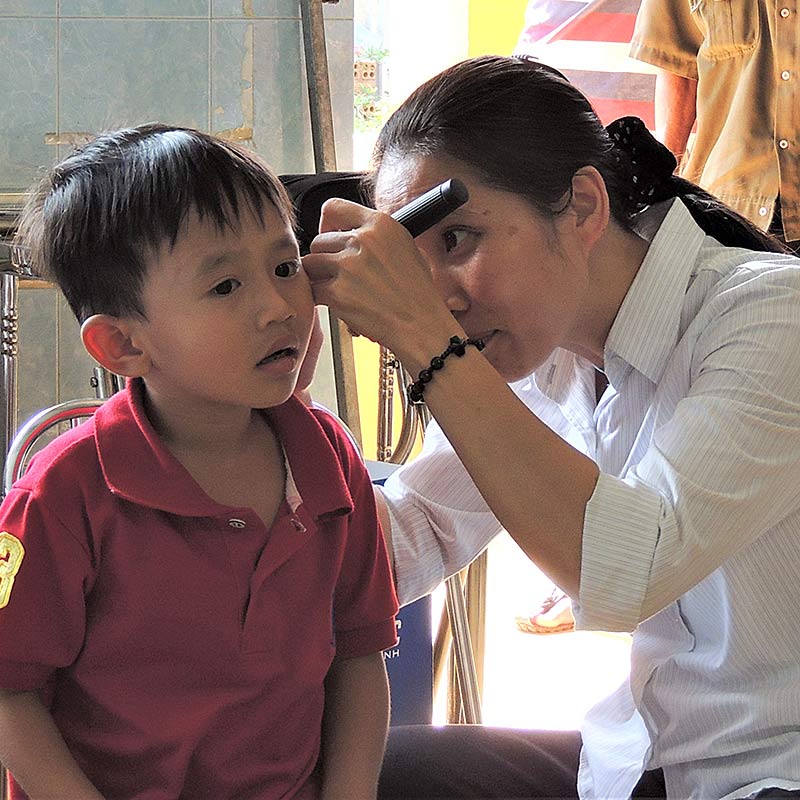
Tuvshinbayar
In Mongolia, age 5 was the average age of identification of hearing loss in young children before the Global Foundation For Children With Hearing Loss helped the Mongolia Ministry of Health implement newborn hearing screening in the country. Newborn hearing screening enables proactive testing of infants for hearing loss as early as 24 hours after birth. The sooner that hearing loss is identified, the more time there is to address it during the child’s formative years and the less impact that hearing loss will have on the child’s auditory, speech, and language development.
Tuvshinbayar was one beneficiary of the newly installed newborn hearing screening program. Born in Mongolia to parents of typical hearing, there was no reason to be concerned about any potential issues with his hearing. However, the nurse at the maternal hospital who administered the newborn hearing screening test on Tuvshinbayar when he was a day old was unable to get a positive response.
The family was directed to return a month later for additional testing. It was then confirmed that Tuvshinbayar had a severe hearing loss. The family was surprised at the results and anxious about what to do to help their son.
After discussing with the Mongolian audiology doctors, the family determined that they wanted for their son to have a chance to hear and speak. They secured government financial aid to purchase new hearing aids which were immediately fit by Mongolian audiology doctors participating in the Global Foundation For Children With Hearing Loss training program. The family was also advised of rehabilitation services accessible to them in Ulaanbaatar.
During one of the Global Foundation For Children With Hearing Loss’ Family Education seminars, Tuvshibayar’s mother shared her family’s story with the other attendees. She expressed how grateful she was for the newborn hearing screening that was now available to all babies born in Ulaanbaatar and hoped that it would be expanded out to the rural areas soon. She surmised that without that early identification, it was likely her son would not have been identified with hearing loss so early nor would have received such timely early intervention support.
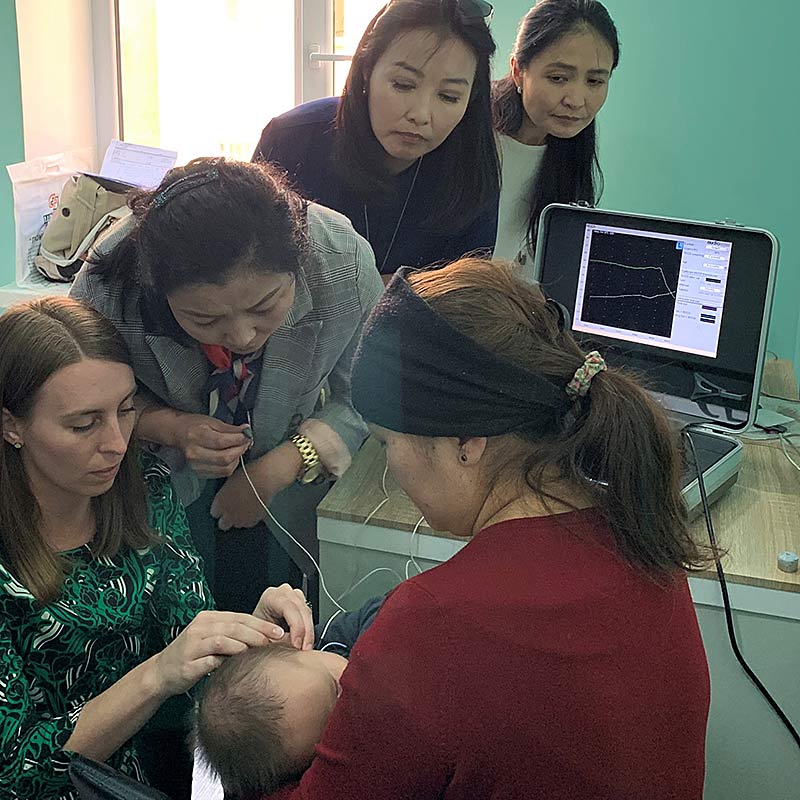
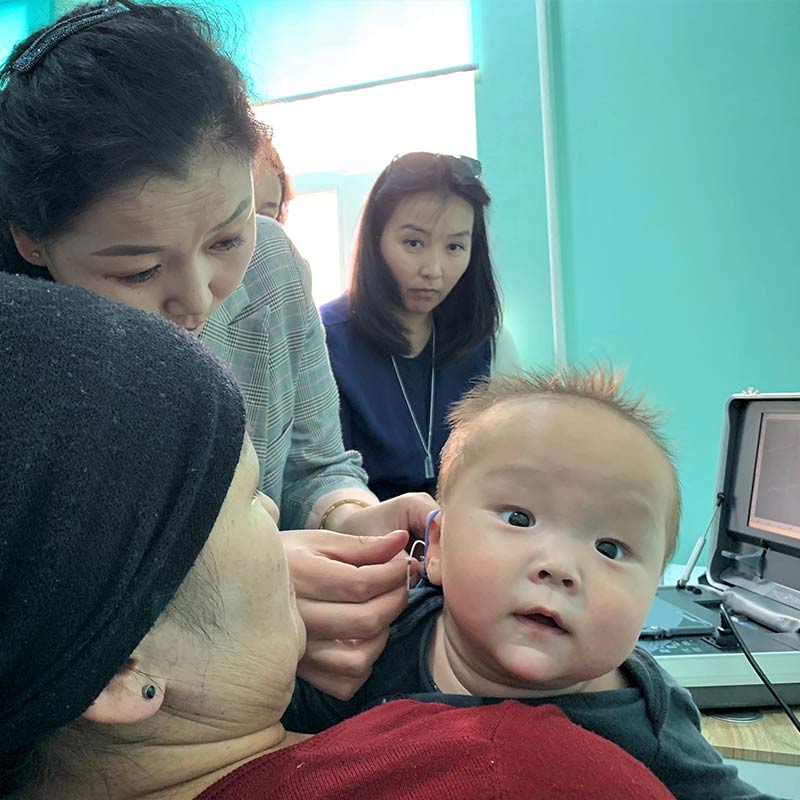
Tùng Dương
(As narrated by Tung Duong’s father and translated by our Vietnam interpreters)
Like many dads and moms, we were counting down the days until the new member of our little nest arrived. When Tung Duong was born, it was a happy day for our family. But after a while, we noticed our son seemed to have some difficulty. We wondered why he would never respond to our call. Did he just love to play too much? Just before his second birthday, we take him for an ear examination at the hospital. And, sure enough, I could not believe my eyes when I saw the audiometry results. Tung Duong had a severe hearing loss.
After that, we registered Tung Duong to participate in the early intervention program at Thuan An Center. We received guidance from the teachers there who had received training from the Global Foundation For Children With Hearing Loss. It was difficult at first for Tung Duong. He has to adapt to hearing aids. He has to learn to listen and distinguish sounds. But, my wife was in tears of joy when one day he called out the number “three” and said “mother”.
We did everything we could to help our son continue to develop using the strategies taught by the Global Foundation For Children With Hearing Loss.
Today, our son asks questions, has known several songs, and reads poetry. The good news is he was able to go into kindergarten with normal hearing children. It was a little later than the usual time for children but we are very proud of our son. He can learn, operate, speak, and hear everyone well.
We would like to send our gratitude to the Thuan An Center, the hospital, the Global Foundation For Children With Hearing Loss, and especially our teachers who wholeheartedly supported our family so that he has the results he does today.
